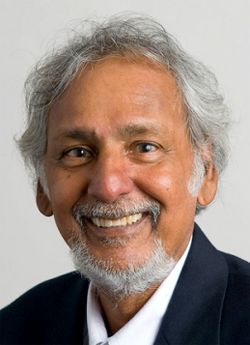Much is being written about the gradual decline of West Indies cricket by commentators who refuse to do their homework. The latest public enemy is the West Indies Cricket Board (WICB) and its poor governance, suggesting that the cricket world is leaving them behind as they twiddle their thumbs in a mindless vacuum.

Dr. Allen Sammy
The construct of the board’s 18-person directorship is a mix of a president, vice-president, four independent professionals and two representatives each from six territories (12), not to be confused with 12 territorial representatives.
Their agenda is Caribbean cricket. However, they are mindful at all times that they represent shareholders and must express the views of territorial boards and their stakeholders. The president and vice-president may be elected from the public at large and the four specialist directors vary with the specific skills required at any given period.
At this time, these four directors are Caricom, represented by Ricky Skerrit (St Kitts/Nevis), business, represented by Don Wehby (Jamaica) and Clifford Reis (Guyana), and banking, represented by Jennifer Nero (St Kitts). One can Google their credentials and stop the old talk about enhancing board skills. In addition, each of the other directors brings specific academic and experiential skills honed in cricket administration.
There is no ideal governing structure, and copying even modified high-profile company models may not be necessarily applicable to our 16 Caribbean cricket- playing nations’ environment (six territorial boards composed of 15 islands and Guyana).
If we accept that clubs-in-communities are the bedrock on which West Indies international cricket success has been shaped, and that this remains relevant, then the challenge is to have a strong WICB which acknowledges the centrality of vibrant territorial boards acting in unison on a common development agenda.
The current board structure seeks to represent precisely this reality.
There is talk of a more business approach to organizing and operating our cricket. In business, the output is a definable product and the bottom line is profits. In cricket, the product is skilled players and the bottom line is winning.
It is the territories which produce the cricketers and not the WICB.
The challenges then are with the 16 sovereign territories to put out or shut up. Historically, Caricom has bobbed and weaved on their responsibilities in this regard.
They still cite the construction of stadiums all over the Caribbean in 2007, but where has been the collective Caricom commitment to cricket over the past eight years? At the annual general shareholders’ meeting, seven Caribbean organizations are represented as special members in addition to the 12 shareholders from six territorial boards. These are the West Indies Players’ Association, West Indies Cricket Umpires’ Association, Caricom, Association of Caribbean Tertiary Institutions, Association of Caribbean Media Workers, Caribbean Association of Industry and Commerce, and Caribbean Tourism Organization.
At the AGM in March 2015, I recommended that these seven should meet together within 100 days and propose ways forward for West Indies cricket and the business of cricket. I am not aware they have yet met.
The point remains, however, that our cricket is in poor shape and things must change. But in proposing solutions, are we looking for the problems in the right place? Fire the board and then we would start to win seems to be the quantum leap the public expects, as Cameron’s head rolls.
If indeed cricket is a reflection of the state of our society, then the problem is with our leaders, not the WICB.
Let us shift the conversation to where we are as a Caribbean society and let Caricom’s investigative team do some real homework.
Dr. Allen Sammy
First Vice President
Trinidad & Tobago Cricket Board
The above article was first published on http://www.newsday.co.tt



